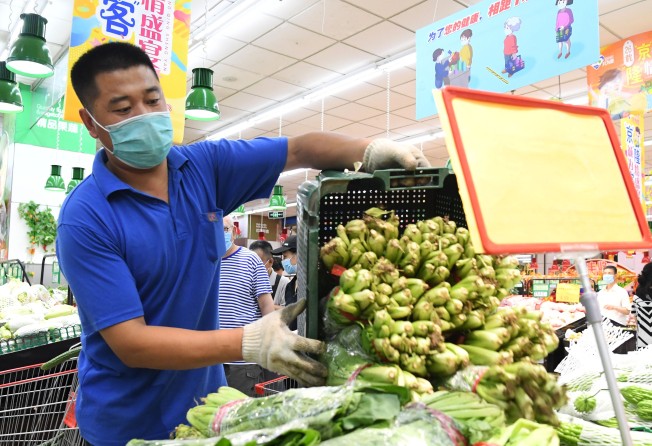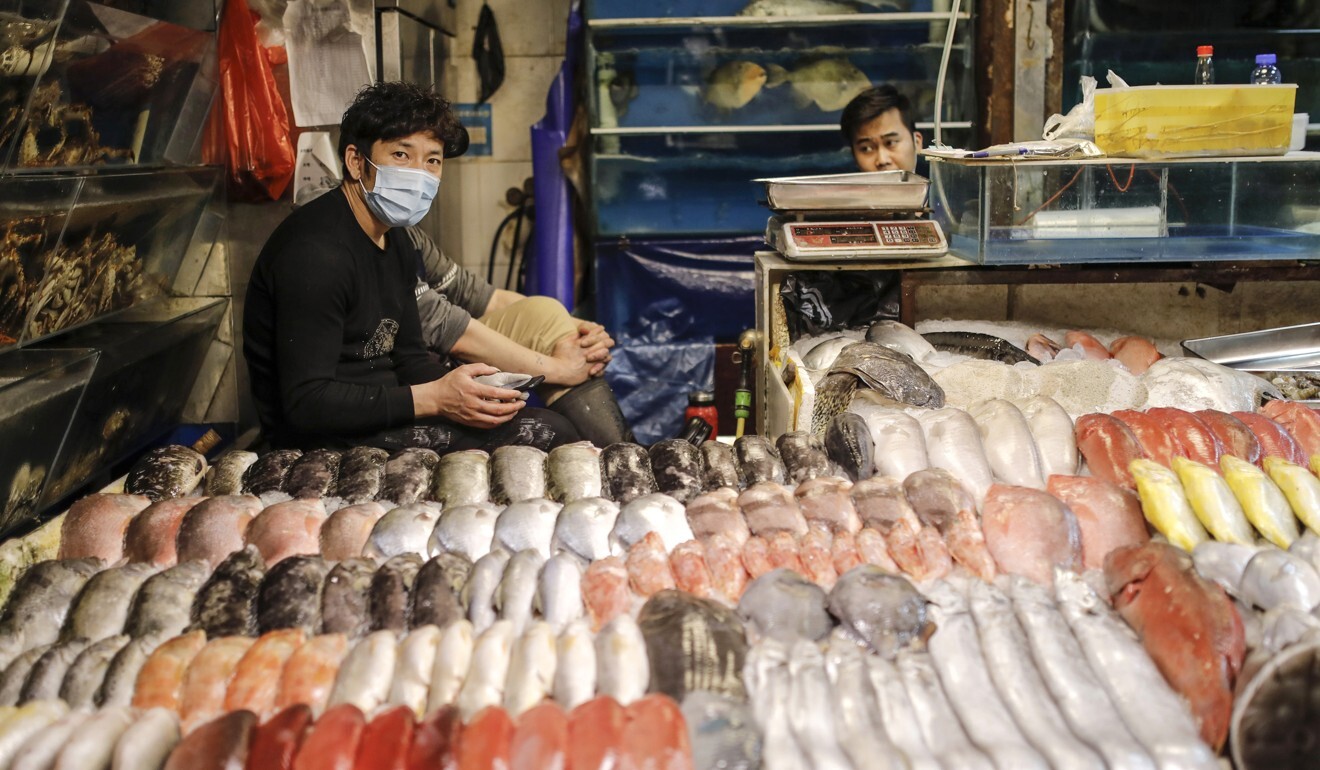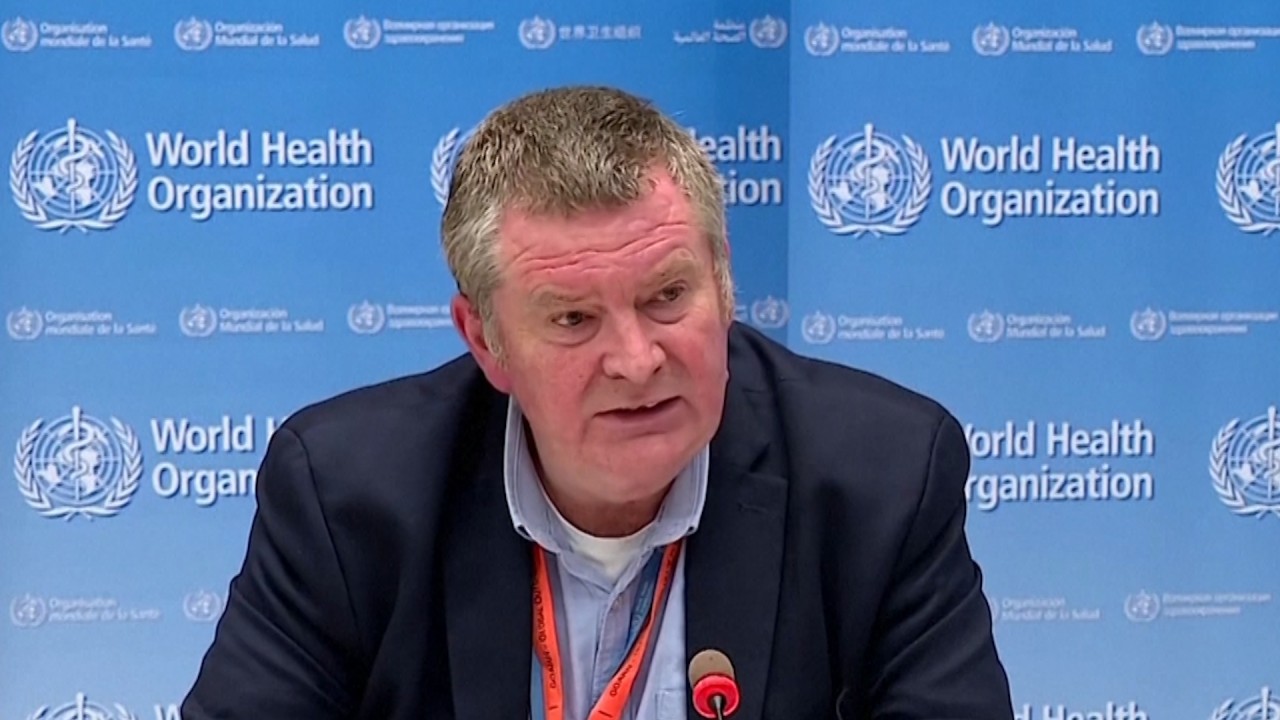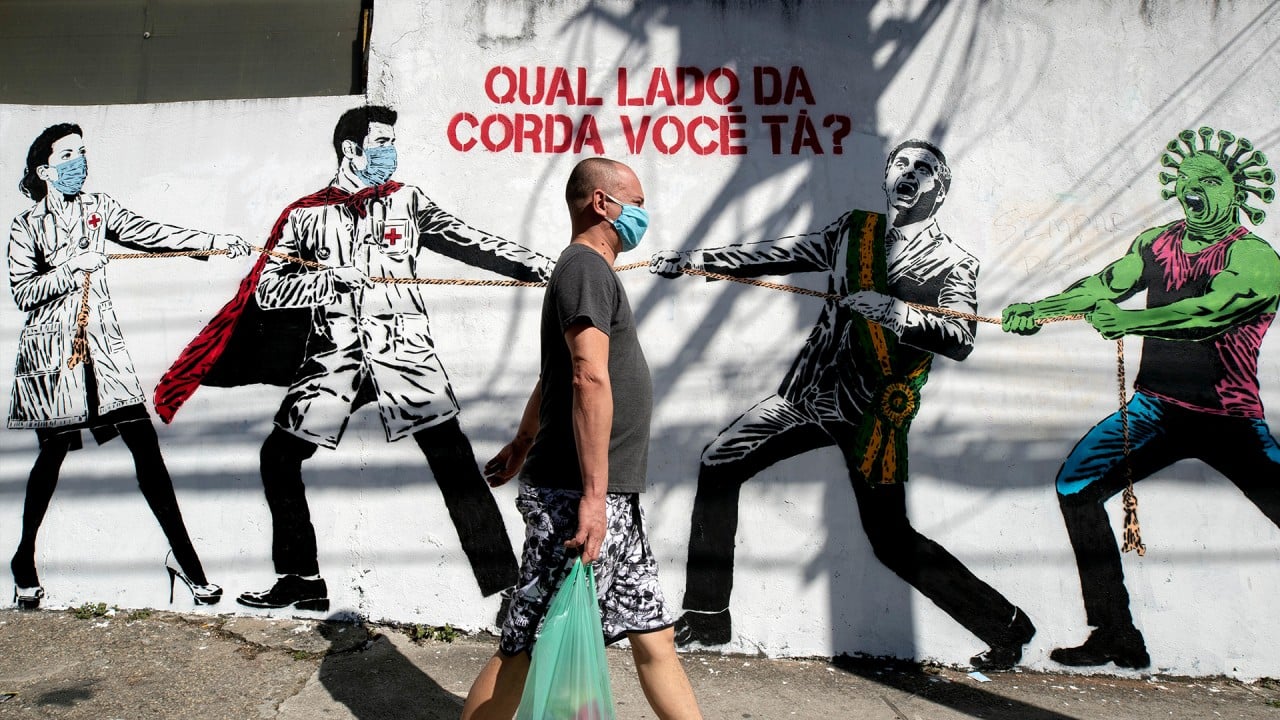Does Covid-19 spread through food? The evidence says ‘highly unlikely’
- A fresh outbreak linked to a market in Beijing has fuelled speculation that contaminated food from overseas could be to blame
- But experts don’t see it as a vehicle for virus transmission, and some say livestock is the more important area to investigate

Since a new outbreak of Covid-19 on June 11 was linked to a fresh food market in Beijing, thousands of samples of imported and domestic seafood, meat and vegetables in China have been tested for the virus. So far, all have been negative.
That fits with the consensus of international health and food organisations that there is no evidence the new coronavirus spreads through foodstuff or packaging. But it has not stopped China tightening controls on imports amid concern the outbreak may be linked to food from abroad.
Restrictions include banning products from certain foreign meat plants and asking exporters to confirm the safety of their shipments. The moves have raised concern in the US, which has a trade deal with China that involves huge volumes of food exports.
“There is no evidence that people can contract Covid-19 from food or from food packaging,” US Secretary of Agriculture Sonny Perdue and Food and Drug Administration commissioner Stephen Hahn said in a statement on Wednesday. “The US food safety system, overseen by our agencies, is the global leader in ensuring the safety of our food products, including product for export.”
Still, the outbreak has puzzled authorities in China after the capital went 55 days without a new reported infection. The source is still unknown.

It was the discovery of traces of the virus on a cutting board used for imported salmon in the city’s Xinfadi wholesale market that fuelled speculation food contaminated by sick workers overseas could have brought the virus into the country.
Chinese health officials have acknowledged that contamination from overseas is just one theory, and a customs official last week noted that the risk of the coronavirus spreading via the food trade was “extremely low”. A public health bulletin circulated this week by state media did not discourage eating imported food, but rather emphasised proper hygiene and handling.

01:58
Salmon import ban and partial lockdown for Beijing after new Covid-19 cases in Chinese capital
China and Norway, the world’s biggest producer of salmon, both agreed Norwegian fish was not the source of infection in Beijing, but that did not prevent a sharp slump in sales of seafood as products were pulled from supermarket shelves.
I don’t think surveillance of food products or food packaging is likely to prevent Covid-19 transmission
Likewise, guidelines for food businesses released by the Food and Agriculture Organisation of the UN and the World Health Organisation say “it is highly unlikely that people can contract Covid-19 from food or food packaging”.
They also underline the importance of proper hygiene to “reduce the risk of food surfaces and food packaging materials” being contaminated with the virus from sick workers. Research has shown that Covid-19 can survive on some surfaces for several days in lab settings.
University of Hong Kong School of Public Health epidemiology professor Benjamin Cowling said that while “theoretically plausible”, it was “very unlikely in reality that Covid-19 could travel long distances on meat or other food products, and cause an infection after that long journey”.
“I don’t think surveillance of food products or food packaging is likely to prevent Covid-19 transmission,” he said, adding that he was also not aware of evidence for this kind of spread of the disease even in the case of shorter distance domestic shipments.
Imports halted
China did suspend imports from a pork plant in Germany on June 18 owned by Toennies Group and a Tyson Foods chicken processor in the United States on Sunday, after Covid-19 outbreaks among workers. A beef unit under Brazil’s Agra and a British pork plant owned by Pilgrim’s Pride on Monday voluntarily halted exports to China after workers tested positive for the virus, according to the Chinese customs authority.
Ministry of Commerce spokesman Gao Feng on June 18 said China would “strengthen coordination and communication with relevant countries, so as to ensure the quality and safety of imported food and agricultural products from the source, and safeguard the health and safety of Chinese consumers”.

00:47
WHO downplays 'hypothesis' linking salmon to Beijing’s latest coronavirus outbreak
While meat plants have been known hotspots for Covid-19, with thousands of workers infected globally, food coming from these plants, or in general, has not been considered a vehicle for virus transmission by international organisations. Scientists largely are sceptical about the efficacy of testing and banning food imports.
The US Food and Drug Administration on its website notes: “We do not anticipate that food products would need to be recalled or be withdrawn from the market because of Covid-19, as there is currently no evidence to support the transmission of Covid-19 associated with food or food packaging.”
Food safety specialist Benjamin Chapman, a professor at North Carolina State University in the US, agreed food was not a high-risk transmission route as there had not been “any clusters of illnesses around a common food or food package”. Not accepting products from specific plants with outbreaks did not seem like a public health decision, he said.
But he did acknowledge the lack of research on food as a transmission route.
“Over the next 18 months or so the food safety community should really be able to answer these questions with additional data and research,” he said. “The caveat to that is that we really need to collectively focus on reducing person-to-person transmission as much as we can – so food isn’t, and shouldn’t be, our immediate focus.”
What about livestock?
Others scientists argue that focusing on mass testing of imported meats for surface contamination is missing a more important area of the food chain that needs to be monitored: livestock.
“What needs to be looked at is the livestock before they are harvested – is there any evidence of the virus in the livestock?” said Gregory Gray, an infectious disease epidemiologist and professor at Duke University, who works on affiliated campuses in the US, Singapore and China.
Separate studies at Germany’s Friedrich-Loeffler-Institut and the Harbin Veterinary Research Institute in China have both found that pigs and chickens are not susceptible to Sars-CoV-2, the virus that causes Covid-19. The World Organisation for Animal Health does not recommend widespread testing of animals, based on current evidence.
But Gray said these results may not be representative of the real-life situation in farms, where animals like pigs may have weakened immune systems due to other circulating viruses they could be hosting that do not make them physically sick.
“One wonders if multiple respiratory viruses could cause some of those production herds to be receptive to Sars-CoV-2 and have pigs be an amplifying reservoir,” he said, noting such a case would put people working with and slaughtering livestock at risk, rather than consumers. “Systematic sampling of livestock would be useful.”
I’m in the camp of ‘if it’s even remotely possible, rule it out’ – rule it in and rule it out, take a systematic approach
A group of researchers mainly from institutions in China earlier this month also called for surveillance of pigs after their study, which has yet to be peer reviewed, found that the animals, along with cats, had a number of Sars-CoV-2 susceptible cell types.
“Given that the Covid-19 pandemic is still progressing and Sars-CoV-2 strains are constantly evolving, we need to keep monitoring and evaluating the possibility of pigs to become intermediate hosts of a future pandemic,” the authors wrote in the study.

05:38
Experts reluctant to predict end of Covid-19 pandemic as global case numbers keep setting records
Tracey McNamara, a professor of pathology at the Western University of Health Sciences’ College of Veterinary Medicine in California, who recently co-authored an article calling for more research into how Sars-CoV-2 could infect animals, said examining the various routes of transmission was important, even including China’s measures to test surface contamination in food.
“I’m in the camp of ‘if it’s even remotely possible, rule it out’ – rule it in and rule it out, take a systematic approach. You have a novel virus that is surprising us at every turn, and if you’re concerned what about this or what about that, just do a study,” said McNamara, who in 1999 investigated links between a disease affecting birds and a mysterious illness appearing in humans, which turned out to be West Nile virus.
“If anything, all these emerging infectious diseases should wake everyone up to the need to take a 30,000-foot view – you have a new virus, think about the environment, where is it going to gain hold, what are all the possible hosts that may help the virus spread? It’s a bug – where does it go, what does it do, how is it spread and how can we stop it?”
Additional reporting by Reuters